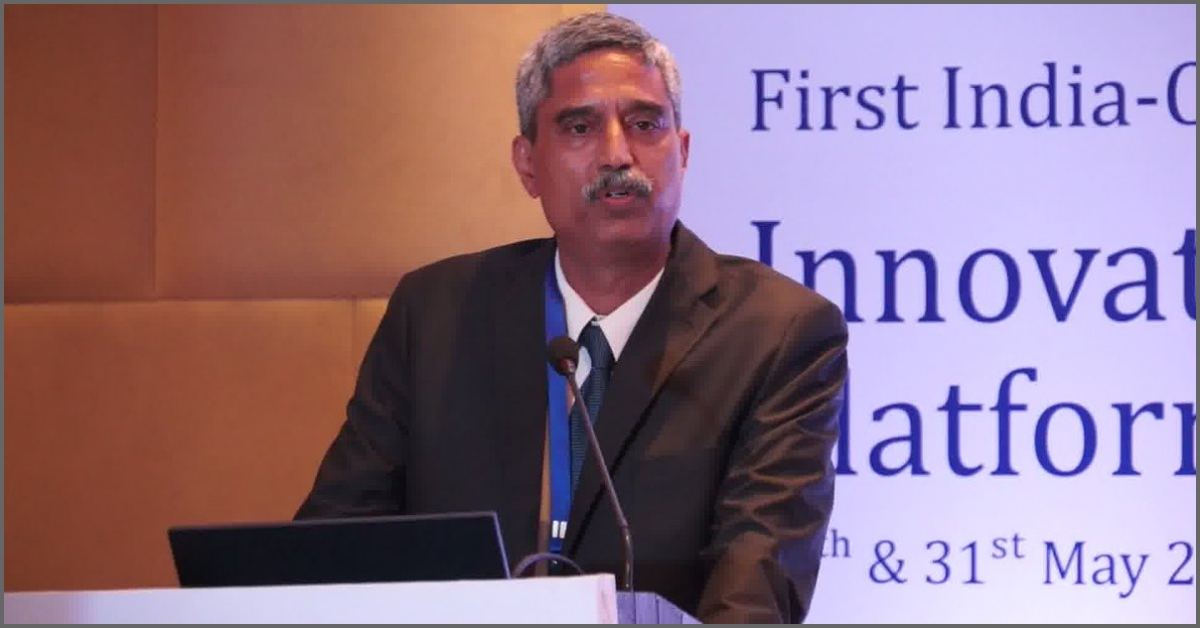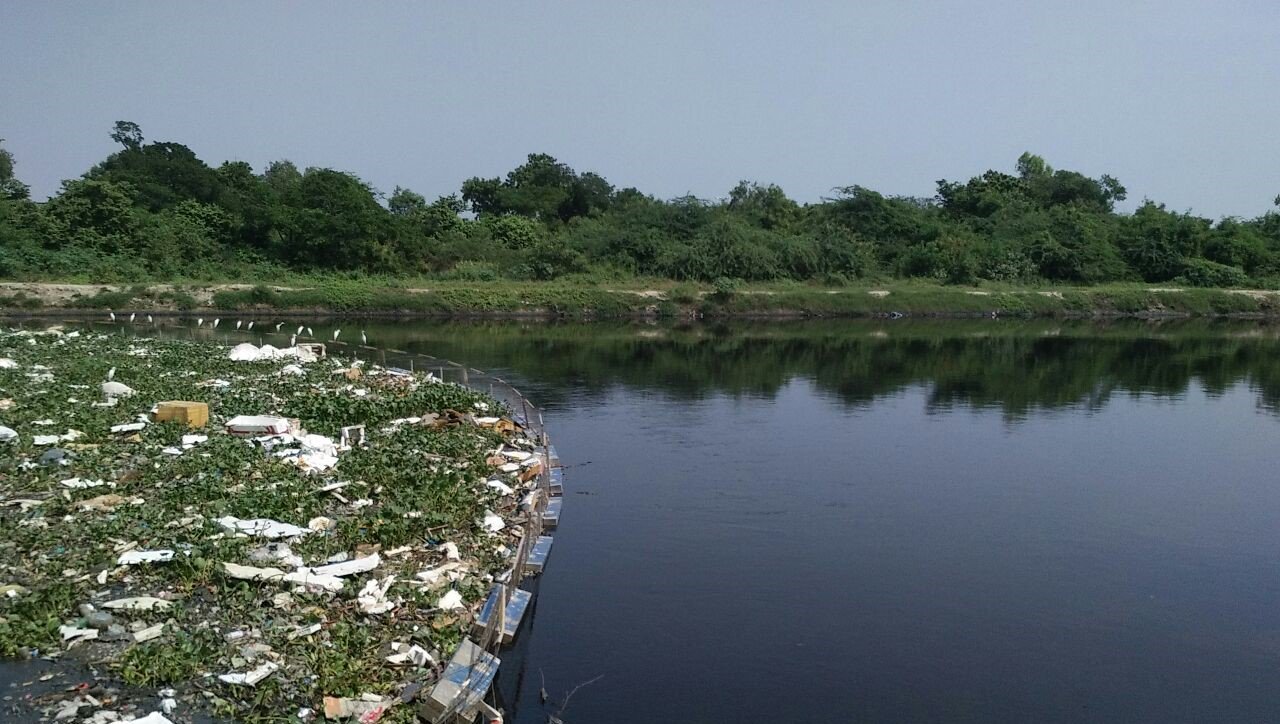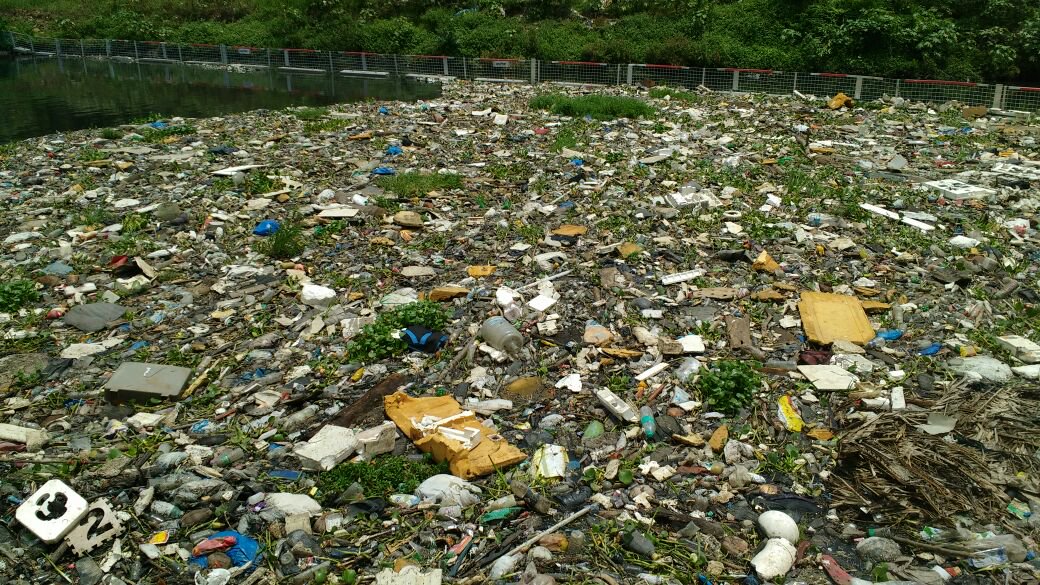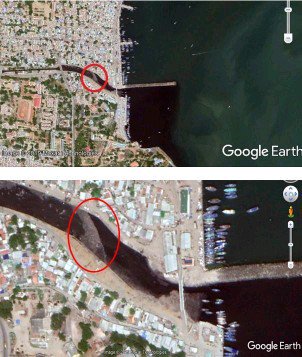Ex-Mariner’s Innovation Has Stopped 30K Tonnes of Trash from Reaching the Ocean!
It’s definitely not a pretty scene when our trash gets flushed into lakes, polluting the water, destroying the ecosystem and aggravating the problem of urban flooding. But Captain Sekhar has a solution!

Captain D C Sekhar’s simple innovation is changing the fate of Chennai’s Cooum river and other water bodies in Bengaluru, Tuticorin and Puducherry.
He has stopped 30,000 tons of trash from entering our lakes, seas and oceans. “It has been my life’s ‘karma’ (purpose),” he tells us.
After a glorious career spanning 26 years in the Merchant Navy and a high-flying job in finance in Singapore, Capt Sekhar felt he could no longer live a routine life. He wanted to come back to India and do something meaningful. And he thought that his best possible contribution could be to save our water bodies.
During his travels as a mariner, he noticed that the waterfronts of other countries are taken great care of, unlike in India where we have accepted dirty water bodies as the ‘normal’.
“I wanted to change this normal. I think that if we give people a clear water body, then they will hesitate to spoil it,” he says, setting his mind on finding the most practical solution.
He adds, “If we do not clean up our trash, no one else will.”
This thought inspired him to leave everything behind to return to India to do his life’s work–building efficient solutions for the water woes of our times through his start-up ‘Alphamers’.
Sekhar is a master designer with great acumen for engineering. He believes that the mind is a fantastic design machine and devoted hours to designing and thinking, investing his life’s earnings into perhaps one of the most simplest, cost-effective and energy-efficient solutions that we have today–floating barriers.

Floating barriers are barricades made out of steel and aluminium, installed at the inlets of water bodies. All the trash–plastic, weed, sludge and mixed trash–get caught there, and are prevented from flowing into rivers and lakes.
It’s definitely not a pretty scene when this trash gets flushed back into our neighbourhoods, hovering on the surfaces, polluting the waters, destroying the ecosystem and disrupting the free flow of water, aggravating the problem of urban flooding.
The collected trash gets removed from the barriers by the municipality and is taken for recycling.
The installation of the barriers is a quick and easy process and they quietly start doing their job once installed. The barriers are placed in locations with road access, which makes it easy to remove the trash, making the earlier practice of using motorboats for the job, redundant. Since JCB trucks are used for trash removal, no human is required to step into these dirty waters.

The floating barriers need no fuel or energy supply to function and require zero maintenance. Built strong enough to withstand flood situations, they are also highly durable in the corrosive, polluted waters that they are installed in.
“I wanted to make sure that my solution should be practical and easily implementable,” says Sekhar.
Since he came back to India and settled in Bengaluru, his first experiments started with the city’s Ulsoor Lake in 2015. Soon, the Chennai City Corporation found this to be a valuable solution and commissioned a pilot project for the Cooum river in 2016.
After the success of the pilot, the floating barriers were installed at eight inlets across the Cooum river in 2017. Capt. Sekhar says that 20,000 tons of trash were removed from Cooum alone in the last one year. Anyone who visited Chennai will know the state of the river, often called as the ‘Sorrow of Chennai’. The efforts to clean it date back to 1872 under the British but the river remains polluted and the water quality is considered toxic till date. But with the floating barriers in place, all the trash gets accumulated within the confines of the barriers, the surface of the Cooum is swept clean and devoid of floating trash.
“Today, Chennai is the only city in the world that does not dump its solid waste into the sea,” claims Sekhar, proud of what his innovation has been able to achieve.
Here’s a screenshot of the Google Earth image of the river where the barriers are deployed. The image clearly shows how the barrier has blocked garbage from flowing into the sea.

The floating barriers, however, are only a first step in the process of cleaning up our rivers and lakes. Ensuring that the water quality improves is the next step, an issue that needs to be addressed at the infrastructural level.
The floating barriers have been installed in water bodies in Puducherry and Tuticorin, and soon at the Adyar river in Chennai. The barriers installed in storm water drains in Bengaluru in Domlur, Silk Board and Agara Lake–have proven to be highly successful in facilitating the free flow of water.
Also Read: In Just 2 Years, This Gujarat Woman Revived 87 Lakes In Tribal Villages
Capt Sekhar and his six-member team at Alphamers is invested in various water-focused innovations. Municipal drain filters, oil spill curtains, weed pullers and wave energy converters are some of them. He is proud that all these solutions were designed and made in India.
To know more about Alphamers, write to Captain D C Sekhar at [email protected].
(Edited by Shruti Singhal)
Images courtesy: Alphamers
Like this story? Or have something to share?
Write to us: [email protected]
Connect with us on Facebook and Twitter.

Similar Story

‘All For My Dad’s Memory’: This Hero Has Grown 12 Food Forests In The Heart of Mumbai
A tree lover since the age of 9, George Remedios quit his advertising job and founded ‘The Turning Tide’ to increase the forest cover in Mumbai. So far, he has planted 12 food forests with edible fruits and encourages people to grow their own food, even in limited spaces.
Read more >
If you found our stories insightful, informative, or even just enjoyable, we invite you to consider making a voluntary payment to support the work we do at The Better India. Your contribution helps us continue producing quality content that educates, inspires, and drives positive change.
Choose one of the payment options below for your contribution-
By paying for the stories you value, you directly contribute to sustaining our efforts focused on making a difference in the world. Together, let's ensure that impactful stories continue to be told and shared, enriching lives and communities alike.
Thank you for your support. Here are some frequently asked questions you might find helpful to know why you are contributing?


This story made me
-
97
-
121
-
89
-
167












